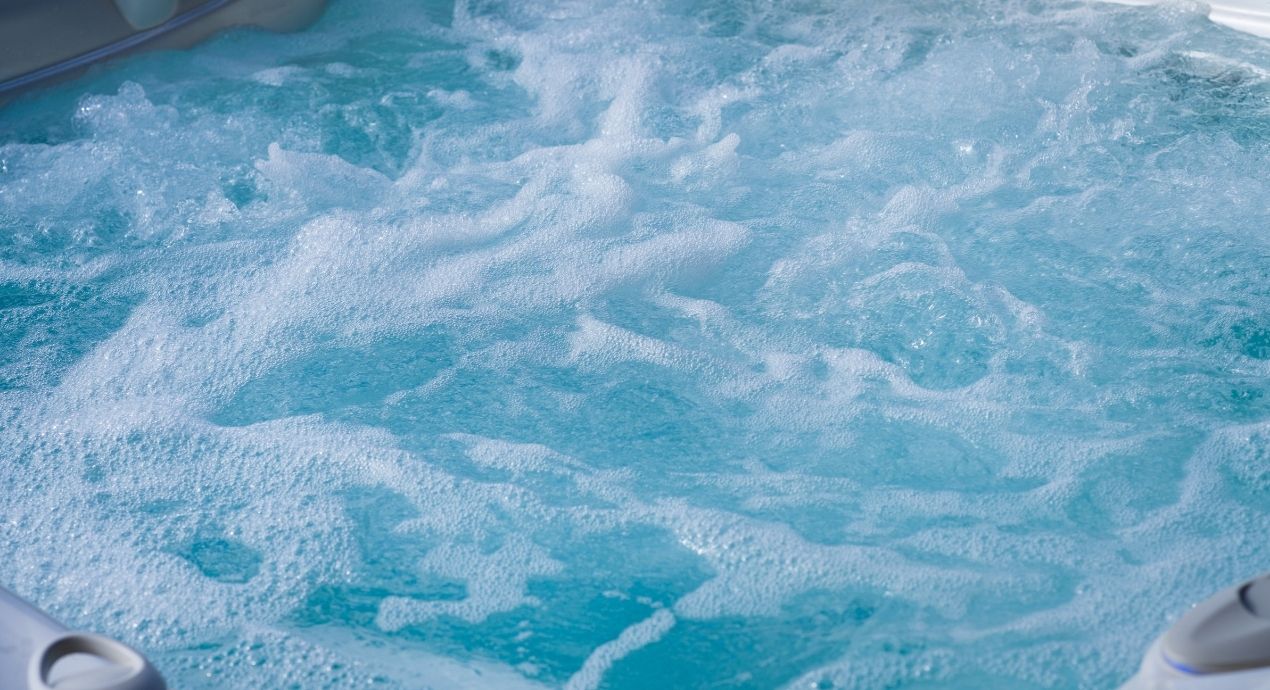
Contemplating coverage?
Subscribe to receive our emails & get
$200 OFF!
Have questions?
Call us: (833) 544-8273


Written By Clint Bird
Hot tubs can be finicky machines. Let's run through the five most common problems hot tub owners encounter. Better yet, let's review how to resolve those problems. You might be surprised to learn that you don't always need to be a professional technician to know how to fix a hot tub.
There's a reason Liberty Home Guard was rated the #1 Home Warranty Service by U.S. News and World Report for 2021, 2022, 2023, and 2024. Check out our services.
Learn MoreHot tubs, like pools, require a specific chemical balance. This inhibits the growth of bacteria, prevents corrosion of the hot tub's components, and ensures the water is gentle enough for human skin. Bacteria, algae, body oils, sunscreens and lotions, water hardness, water quality, and other factors affect the pH and alkalinity levels of a hot tub's water.
Use testing strips—readily available at pool supplies stores—to gauge pH and alkalinity levels. If rebalancing is necessary, start with alkalinity. You should aim for a level between 80 and 120 parts per million (ppm). If your alkalinity level is too low, add an alkalinity increaser. If it's too high, a pH decreaser will bring down the total alkalinity level. If you add any product, you will need to retest the water to ensure the chemical balance is ideal.
Once you have confirmed that the alkalinity level is within the appropriate range, adjust the pH level with a pH increaser or decreaser. The pH should be between 7.2 and 7.8.
Test your hot tub's water regularly to make sure it stays in the appropriate pH and alkalinity ranges.
Neglecting regular maintenance can result in dirty or oily water in your hot tub. If your hot tub's water is cloudy or otherwise uninviting, here's what to do.
Start by removing any debris. Use a skimmer to retrieve leaves, bugs, and other such matter. If the water and tub itself are especially dirty, you may need to drain the water and scrub the tub. Minerals and body oils can cling to the tub, so periodic cleaning is a necessary part of upkeep.
Scrub the tub with a pH-neutral cleaner. Avoid typical household cleaners and instead find a specialized product at a pool or spa supply store. Remember to also remove the filter. Replace or clean the filter, depending on your model of tub.
Once the tub is cleaned, refill it with fresh water. Adjust the chemical balance. Finally, run the jets for 15 minutes before jumping in.
It's not uncommon for homeowners to complain of a jacuzzi tub heater not working properly. This is sometimes caused by a water level that is too low. Top off as necessary.
If increasing the water level doesn't resolve the problem, there could be an airlock in the system. Fix this by turning the jets clockwise to open them. Disconnect the heater. Then run the jets for 15 seconds. Turn off the jets and reconnect the heater.
If your problem still persists, there is likely a problem with the heating element. Submit a claim with your jacuzzi spa warranty provider, if you have one, or contact a professional technician.
A noisy pump hardly makes for a relaxing hot tub experience. If you're hearing a deep, low sound—almost like growling—the pump may need water. Top off the water level, ensure the valves are open, and check for any debris that could be interfering with the machine.
If, on the other hand, you hear a high pitched whine, the problem is probably unlubricated or old bearings. Lubricate or replace as needed.
If you're dealing with a hot tub pump not working at all, check the water level. If that appears okay, contact a technician.
Internal circuitry in hot tubs can fail over time. Sometimes it's a minor malfunction. Many manufacturers build models that display specific error codes, so you can consult your user's manual to resolve Master Spa problems or Jacuzzi problems, for example.
Best case scenario, you need to reset the unit, replace the filter, or perform some other easy task. Worst case, the circuit board is damaged. This would require repair or replacement with a professional's help.
If you encounter a problem with your hot tub that you can't resolve yourself, you may be lucky enough use the manufacturer's warranty to fix the issue. But if your Master Spa or Spa Electrics warranty has expired, or if that manufacturer's warranty doesn't cover your particular problem, you're responsible for the repair costs.
A home warranty from Liberty Home Guard is a great way to extend your coverage and affordably maintain and repair your equipment. Our spa coverage will protect your heating, pumping, and filtration systems. You'll save money and extend the life of your hot tub or spa.
Use our website for a free quote or call (866)-225-7958.
Stay Ahead of Potential
Home Mishaps!
Subscribe to our Liberty Home Guard Newsletter and gain access to exclusive content that ensures your peace of mind.